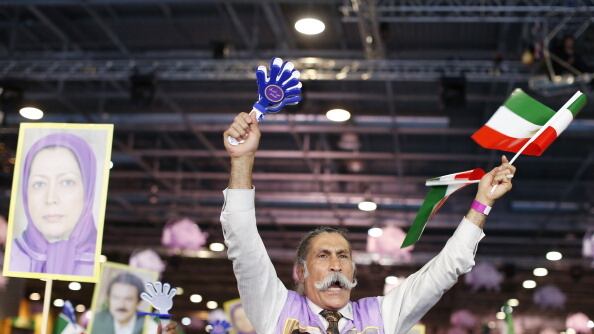Last night I was on Al Jazeera's "Inside Story Americas," a panel discussion program, talking with Jeremiah Goulka and the Washington Institutes's Patrick Clawson about the U.S. decision to remove the Mojahedeen-e Khalq (MEK) from the government's terror rolls after a well-funded, years-long lobbying campaign. It was a rich conversation and at times lively, though not thorough. We talked about the merits of the delisting and some of the potential effects on the broader terrorism list, but not what it means for Iran policy and Iranian politics specifically. On the latter score, there are lots of good takes out there already, and LobeLog and Andrew Sullivan have done us all the favor of rounding up a lot of the complaints.

For my money, the chances of war with Iran only get a boost insofar as Iranians didn't already assume the worst of U.S. intentions. As is, the paranoid leadership there believes America is in cahoots with the MEK, or at least they already say as much in their propaganda pleas. The more likely damage from the decision will be done in justifying the ongoing crackdown against the Islamic Republic's internal opposition, including human rights and pro-democracy activists, which will be lent credibility among ordinary Iranians who disdain the MEK. Consider, for example, a photo from a pro-regime rally last year (reprinted by Matt Duss in a must-read post) of Green Movement leader Mir Hossein Moussavi's face blended with that of MEK leader Massoud Rajavi's, all set before a backdrop of the American flag.
At the Financial Times, the excellent Tehran-based reporter Najmeh Bozorgmehr pulls at this thread:
"The regime, thanks to the U.S., has a better excuse now to suppress the legitimate opposition inside Iran," said a supporter of the pro-democracy Green Movement. "It is very disappointing to see the U.S. cannot understand Iran’s politics."...The U.S. cannot "repeat its lies any longer that it cares about democracy and human rights," said a reform-minded professor of politics in Tehran University. The U.S. intended to use the delisting of MEK as leverage "not only against the regime but also [against] the pro-reform movements," he added.
American officials can protest all they want "that taking the MEK off the terrorist list would not connote U.S. government approval," but that's wishful thinking. The MEK already has robust support in Congress, and I strongly suspect in the near term we'll see an effort to recognize the group as Iran's legitimate opposition and fund them. As I previously reported, some of the MEK's most fervent Stateside supporters were tied to Ahmad Chalabi's Iraqi National Congress, the exile group that prodded the U.S. into that other Middle Eastern war. There's clearly a game-plan here.Delisting the MEK may have been a result of sound legal and bureaucratic deliberations, but that doesn't mean it can't be tremendously damaging to American or Iranian pro-democratic interests on a number of fronts. With the enmity in Washington for Iran, irresponsible support for the MEK carries few if any political costs (which we saw from the campaign to delist the group). As Jeremiah Goulka, who's done yeoman's work researching and commenting on the MEK, wrote after the delisting, the U.S. "should consider making it policy for the government not to fund, employ, or otherwise collaborate with the group." I'm not holding my breath: can you imagine the (unquestionably legal) lobbying campaign in opposition to that?






